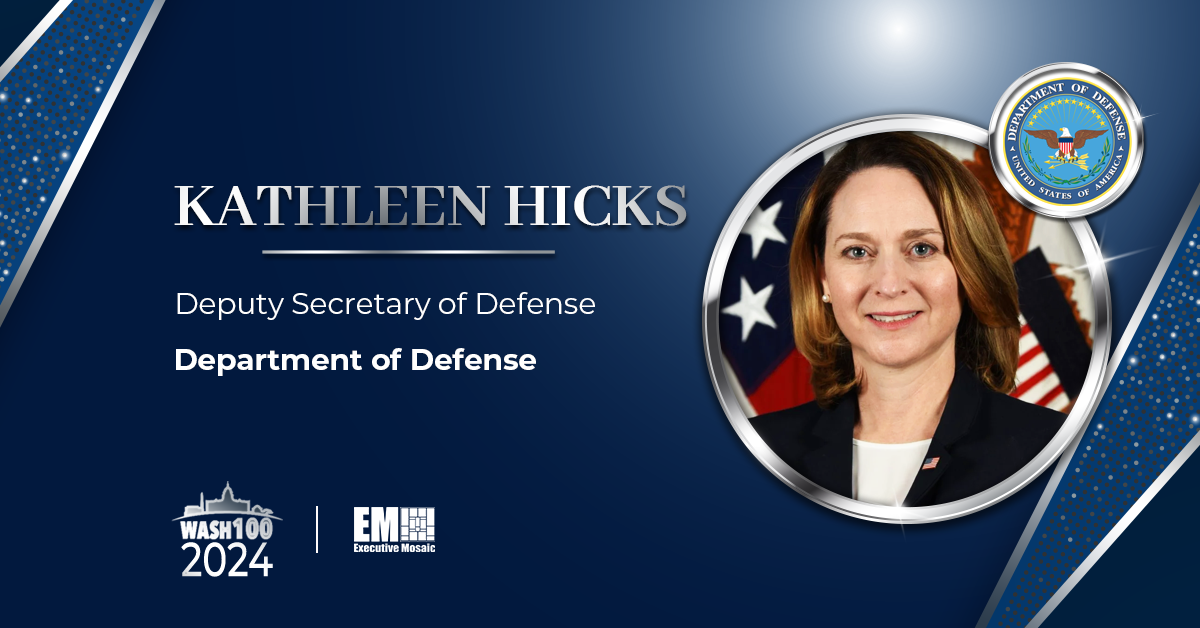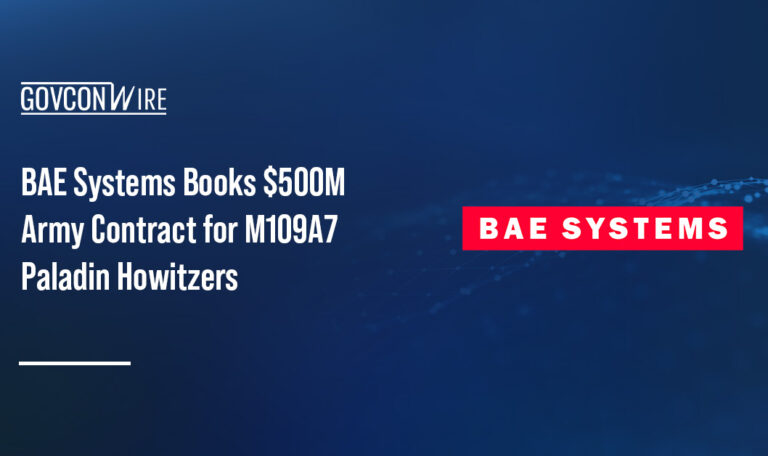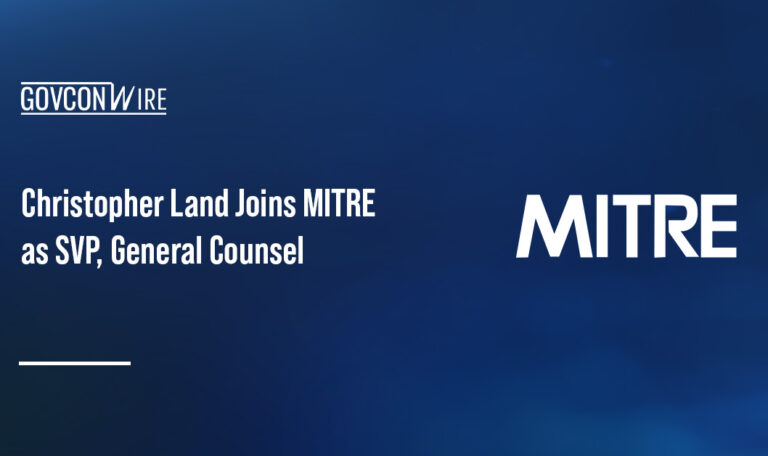Executive Mosaic is honored to present Kathleen Hicks, deputy secretary at the Department of Defense, as an inductee into the 2024 Wash100 — an annual list of public and private sector leaders who are at the forefront of trends and events shaping the government contracting activity.
Vote for Hicks as your favorite GovCon leader as part of the 2024 Wash100 popular vote competition! Voting closes on April 30, so visit Wash100.com to cast your ten votes today.
Her fourth consecutive Wash100 Award is in recognition of her push for emerging technology adoption to support national security missions.
“Kathleen is one of the leading voices championing the accelerated, responsible adoption of artificial intelligence across the Department of Defense, and the impact of her leadership in this area is especially evident through the DOD’s cutting-edge Replicator drone program. Kathleen is a critical force driving defense missions forward; her reliability, innovation and outstanding leadership are assets not only to our country but to our 2024 Wash100 list as well,” said Jim Garrettson, CEO of Executive Mosaic and founder of the Wash100 Award.
In November, Hicks unveiled a strategy meant to help DOD accelerate the adoption of analytics, data and artificial intelligence to speed up the decision-making process on the battlefield.
The Chief Digital and AI Office collaborated with other DOD components to develop the 2023 Data, Analytics and AI Adoption Strategy, which outlines the department’s strategic goals to meet its “AI hierarchy of needs,” including quality data, governance, insightful analytics and metrics, assurance and responsible AI.
“As we’ve focused on integrating AI into our operations responsibly and at speed, our main reason for doing so has been straightforward: because it gives us even better decision advantage than we already have today,” Hicks said.
According to the deputy DOD secretary, the Pentagon started experimenting with generative AI before ChatGPT was released.
“Most commercially available systems enabled by large language models aren’t yet technically mature enough to comply with our ethical AI principles, which is required for responsible operational use,” Hicks said. “But we have found over 180 instances where such generative AI tools could add value for us with oversight, like helping to debug and develop software faster, speeding analysis of battle damage assessments, and verifiably summarizing texts from both open source and classified data sets.”
In August, Hicks announced DOD’s plan to deploy thousands of attritable, autonomous systems across multiple domains within the next 18 to 24 months as part of the Replicator program aimed at countering China’s military buildup.
She said the attritable, autonomous platforms could serve as distributed, resilient systems in contested environments and will be developed in line with DOD’s ethical and responsible approach to artificial intelligence and autonomous systems.
“But Replicator will galvanize progress in the too-slow shift of U.S. military innovation to leverage platforms that are small, smart, cheap, and many,” Hicks commented.
In September, the DOD official said the department is working to speed up the deployment of autonomous systems across all domains through the Replicator program as part of efforts to get over the “production valley of death.”
“So, Replicator will use existing funding, existing programming lines, and existing authorities to accelerate production and delivery at scale — by exerting leadership focus and attention on a singular operational challenge and maturing solutions, because that’s what ultimately delivers,” Hicks said. “With Replicator, we’re beginning with all-domain, attritable autonomy, or ADA2, to help us overcome the PRC’s advantage in mass: more ships, more missiles, more forces.”
Apart from AI adoption and Replicator, DOD is also advancing microelectronics. In September, the department awarded $238 million in funding to eight universities and research to establish regional innovation hubs through the Microelectronics Commons program as part of its implementation of the CHIPS and Science Act.
“The Microelectronics Commons is focused on bridging and accelerating the lab-to-fab transition, that infamous valley of death between R&D and production,” Hicks remarked.
In May, DOD launched a new strategy aimed at improving its records management activities as part of efforts to achieve and maintain decision advantage.
“This DoD Records Strategy seeks to employ the latest technologies, such as artificial intelligence and cloud-based services, to reduce the administrative burden associated with records management, while creating an environment where DoD records are automatically identified and captured, expertly curated, and systemically governed,” Hicks in a foreword to the document.
Under her leadership, DOD introduced several initiatives in 2023, including the Small Business Strategy, Defense Management Institute, the Pulse analytics program, the multiyear Cyber Workforce Strategy.
In her keynote speech in May at the 2023 Ash Carter Exchange on Innovation and National Security, Hicks stressed that defense innovation always involves leveraging change to add military value.
“Innovations are often shaped by who’s in the room, and who has a seat at the table,” Hicks stated. “It isn’t just about which tech sectors get R&D dollars. It’s also about having a warfighter-centric culture, and making sure we bring together operators, intel analysts, and technologists routinely and systematically. Because it’s the interaction among these diverse communities that often sparks and catalyzes innovation, and keeps an innovation ecosystem vibrant and fresh and effective.”
Executive Mosaic congratulates Kathleen Hicks and the DOD organization for their selection to receive the 2024 Wash100 Award.
Register here to attend the Potomac Officers Club’s 5th Annual Artificial Intelligence Summit on March 21 and hear federal leaders and industry experts discuss the latest developments in the field.
















